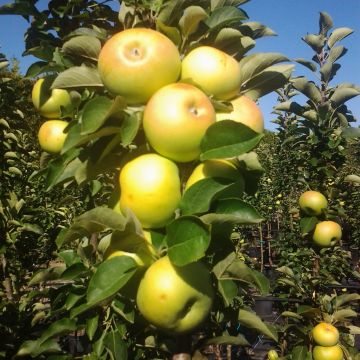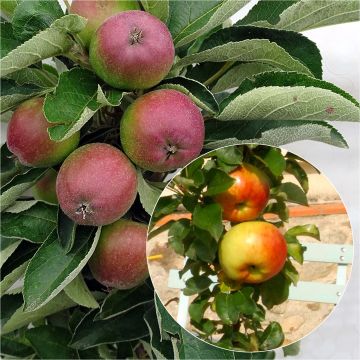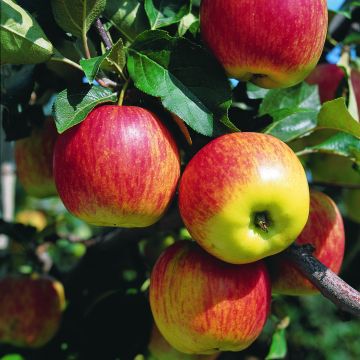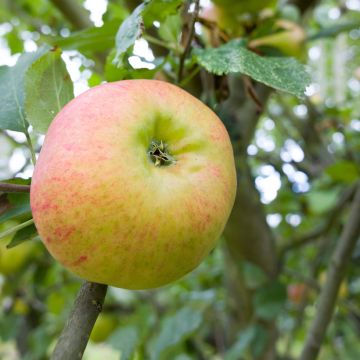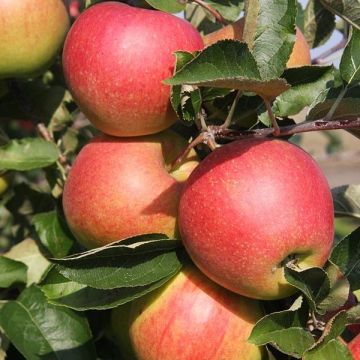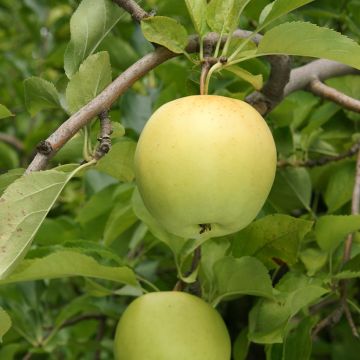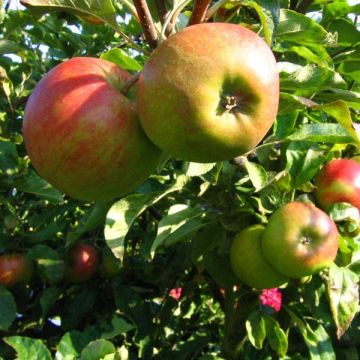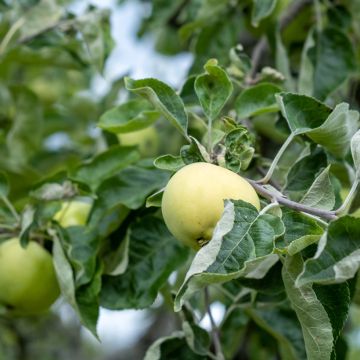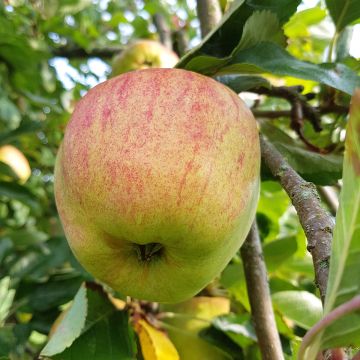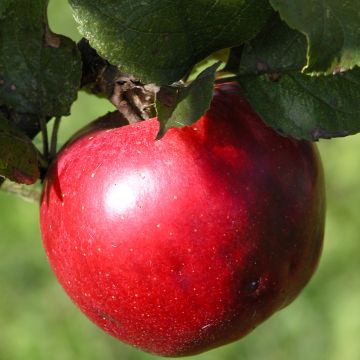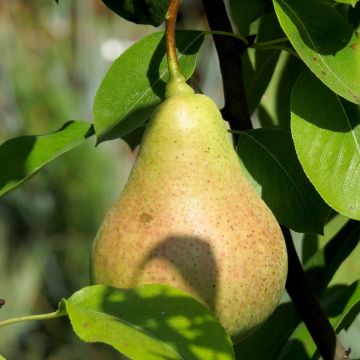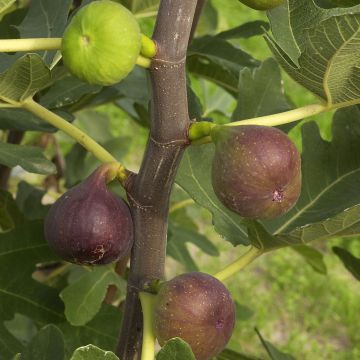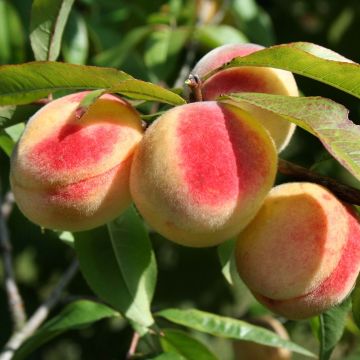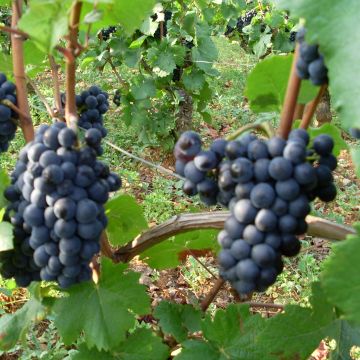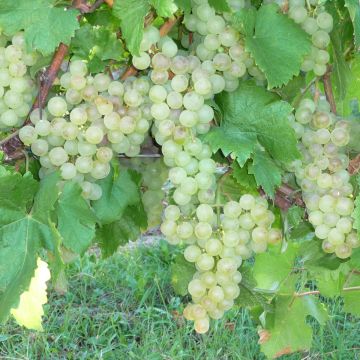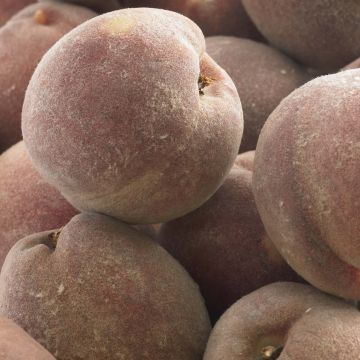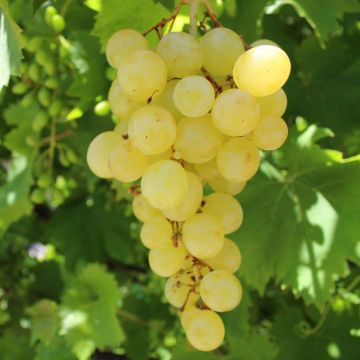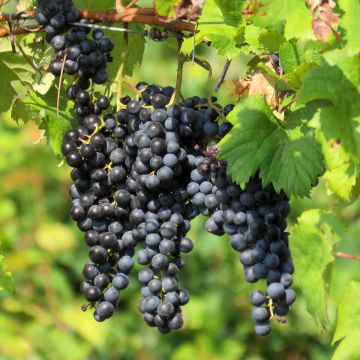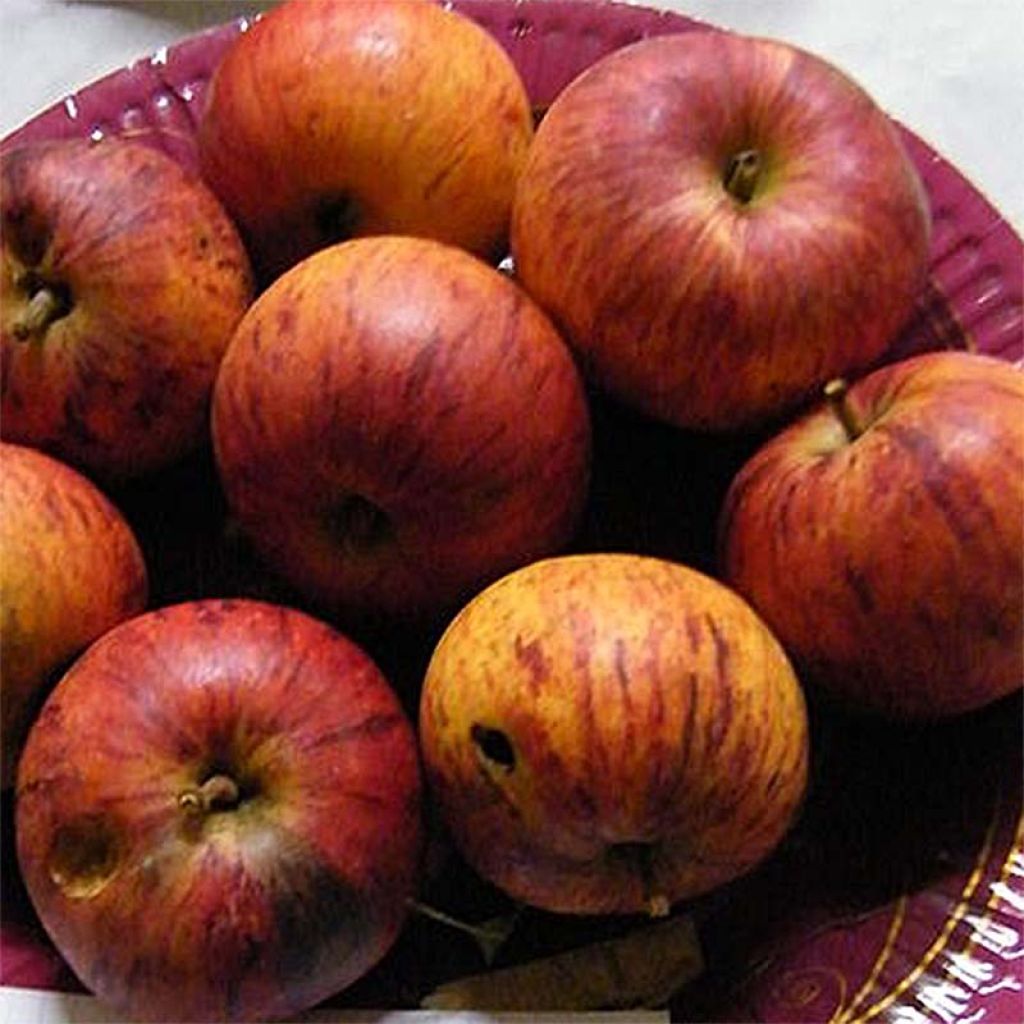

Apple Tree Belle fille de Salins - Malus domestica
Apple Tree Belle fille de Salins - Malus domestica
Malus domestica Belle Fille de Salins
Apple, Orchard apple, Table apple, Cultivated apple
Auprès de quelle autre variété dois je planter la belle fille de Salins?
christine, 10/10/2018
Special offer!
Receive a €20 voucher for any order over €90 (excluding delivery costs, credit notes, and plastic-free options)!
1- Add your favorite plants to your cart.
2- Once you have reached €90, confirm your order (you can even choose the delivery date!).
3- As soon as your order is shipped, you will receive an email containing your voucher code, valid for 3 months (90 days).
Your voucher is unique and can only be used once, for any order with a minimum value of €20, excluding delivery costs.
Can be combined with other current offers, non-divisible and non-refundable.
Home or relay delivery (depending on size and destination)
Schedule delivery date,
and select date in basket
This plant carries a 6 months recovery warranty
More information
We guarantee the quality of our plants for a full growing cycle, and will replace at our expense any plant that fails to recover under normal climatic and planting conditions.
Description
The 'Belle Fille de Salins' Apple Tree is an old variety, late, originating from the Jura region, highly appreciated for its high cold resistance. Productive, it bears delicious small colourful apples, with a yellow skin streaked with red covering a white flesh, crisp, juicy with a subtle hint of almond fragrance. The fruits are harvested in October. These are excellent apples of a reasonably small size, as good raw as cooked. They also have the advantage of long storage; they can be kept until June if stored under very good conditions.
The apple tree (Malus domestica) is a fruit tree belonging to the rose family. It is grown almost everywhere in the world and includes an infinite number of varieties, old or modern, which produce apples of various sizes and more or less sweet or tangy flavours. Apple trees are native to Europe, where their presence has been documented since antiquity. Very hardy, the 'Belle Fille de Salins' variety easily withstands temperatures down to -20°C (-4°F) and blooms very late, usually in mid-May, which protects its flowers from late frosts. It is a disease-resistant variety, including scab, and is ideal for cold climates and mountainous regions. This apple tree is not self-fertile, so it should be planted near varieties that bloom simultaneously to bear abundant fruit.
The size of the domestic apple tree does not exceed ten meters in height and almost as much in width. This size can be even smaller depending on the rootstock's vigour. This fruit tree is generally a tall trunk tree that naturally spreads out. It comes in different forms (bush, half-standard, standard...) and can be trained in many ways (column, cordon, espalier...). The apple tree leaves are deciduous and arranged alternately on the branches. Their lamina is oval and toothed. They have a dark green upper surface and a whitish lower surface, which is slightly hairy. In spring, the apple tree bears white or pinkish-white flowers grouped in corymbs. The apple flowers consist of 5 petals and the white flowers surround a core of about 20 stamens. They give birth to fleshy, spherical fruits filled with pips. Their colour, size, flavour, and storage duration vary depending on the variety.
The apple tree can be grown in all climates but particularly appreciates temperate regions, preferably humid. It thrives in the sun in reasonably moist and rich soil. It is traditionally planted in the heart of an orchard but can also be grown as a standalone tree or hedge. It is an easy fruit tree that requires at least some pruning. Proper pruning will prevent alternate bearing (fruiting every other year). An annual or biennial application of well-rotted compost also promotes apple tree productivity. Apples are harvested in late summer and autumn and can sometimes be stored for an extended period in a cellar and consumed until early spring. Apples lend themselves to various culinary preparations (compotes, pies, jellies) but can also be used to make apple juice or cider.
This fruit tree is delivered in a "ready-to-plant" root ball. During planting, the root ball should be planted as is. The biodegradable tontine surrounding the root ball and preserving the rootlets will rot down naturally during the plant's growth. By doing so, you ensure better establishment.
Report an error about the product description
Apple Tree Belle fille de Salins - Malus domestica in pictures
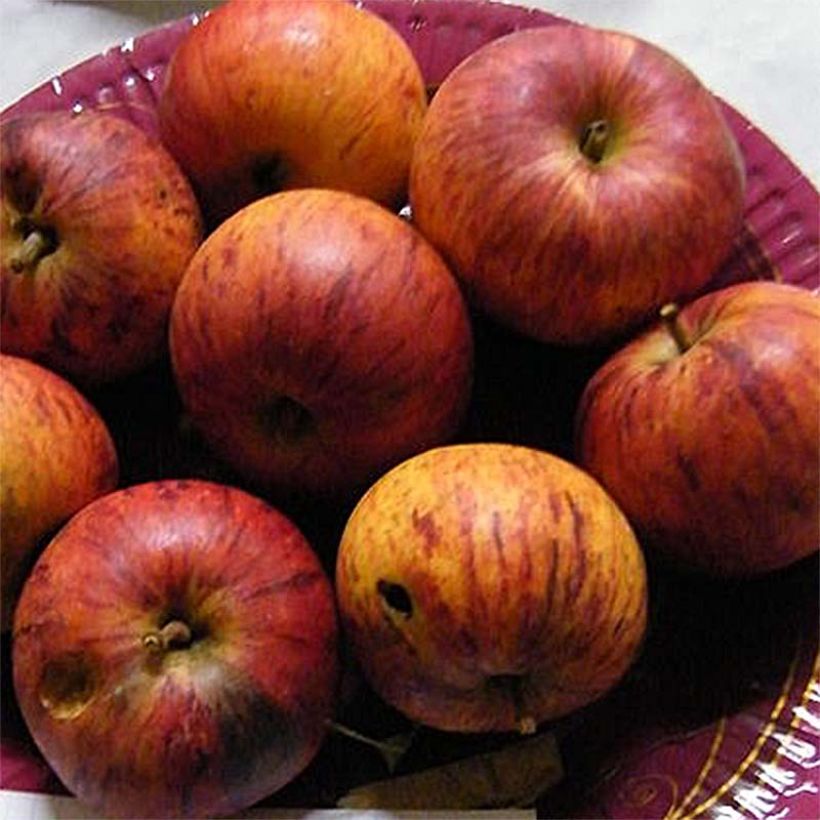

Plant habit
Fruit
Flowering
Foliage
Botanical data
Malus
domestica
Belle Fille de Salins
Rosaceae
Apple, Orchard apple, Table apple, Cultivated apple
Cultivar or hybrid
M106 (Ready-to-plant root ball - Goblet)
Other Apple trees
View all →Planting and care
Choose a sunny location for your 'Belle Fille de Salins' Apple Tree. The soil can be slightly chalky or acidic but not excessively so. Dig a wide planting hole at least 3 times the size of the root ball. Simultaneously add organic matter (topsoil, compost...) and a base fertiliser like bone meal. Do not bury the graft collar. Stake if necessary. Water abundantly, even in winter, even if it rains. Fruit trees are ideally planted between October and March, outside periods of frost. Container-grown plants can be planted all year round, except during periods of high heat or frost.
In winter, you can add a small handful of wood ash, rich in potassium, which will improve fruiting. Watch out for possible aphid attacks during the season. A white powdery mildew caused by a fungus may appear on the leaves in summer, but it does not harm fruit development in gardens. Harvest takes place in September. Only keep the picked fruits. Apples should be stored with the stem downwards, on shelves or in crates. Choose a preferably completely dark, dry and cool place, but frost-free.
Planting period
Intended location
Care
-
, onOrder confirmed
Reply from on Promesse de fleurs
Similar products
Haven't found what you were looking for?
Hardiness is the lowest winter temperature a plant can endure without suffering serious damage or even dying. However, hardiness is affected by location (a sheltered area, such as a patio), protection (winter cover) and soil type (hardiness is improved by well-drained soil).

Photo Sharing Terms & Conditions
In order to encourage gardeners to interact and share their experiences, Promesse de fleurs offers various media enabling content to be uploaded onto its Site - in particular via the ‘Photo sharing’ module.
The User agrees to refrain from:
- Posting any content that is illegal, prejudicial, insulting, racist, inciteful to hatred, revisionist, contrary to public decency, that infringes on privacy or on the privacy rights of third parties, in particular the publicity rights of persons and goods, intellectual property rights, or the right to privacy.
- Submitting content on behalf of a third party;
- Impersonate the identity of a third party and/or publish any personal information about a third party;
In general, the User undertakes to refrain from any unethical behaviour.
All Content (in particular text, comments, files, images, photos, videos, creative works, etc.), which may be subject to property or intellectual property rights, image or other private rights, shall remain the property of the User, subject to the limited rights granted by the terms of the licence granted by Promesse de fleurs as stated below. Users are at liberty to publish or not to publish such Content on the Site, notably via the ‘Photo Sharing’ facility, and accept that this Content shall be made public and freely accessible, notably on the Internet.
Users further acknowledge, undertake to have ,and guarantee that they hold all necessary rights and permissions to publish such material on the Site, in particular with regard to the legislation in force pertaining to any privacy, property, intellectual property, image, or contractual rights, or rights of any other nature. By publishing such Content on the Site, Users acknowledge accepting full liability as publishers of the Content within the meaning of the law, and grant Promesse de fleurs, free of charge, an inclusive, worldwide licence for the said Content for the entire duration of its publication, including all reproduction, representation, up/downloading, displaying, performing, transmission, and storage rights.
Users also grant permission for their name to be linked to the Content and accept that this link may not always be made available.
By engaging in posting material, Users consent to their Content becoming automatically accessible on the Internet, in particular on other sites and/or blogs and/or web pages of the Promesse de fleurs site, including in particular social pages and the Promesse de fleurs catalogue.
Users may secure the removal of entrusted content free of charge by issuing a simple request via our contact form.
The flowering period indicated on our website applies to countries and regions located in USDA zone 8 (France, the United Kingdom, Ireland, the Netherlands, etc.)
It will vary according to where you live:
- In zones 9 to 10 (Italy, Spain, Greece, etc.), flowering will occur about 2 to 4 weeks earlier.
- In zones 6 to 7 (Germany, Poland, Slovenia, and lower mountainous regions), flowering will be delayed by 2 to 3 weeks.
- In zone 5 (Central Europe, Scandinavia), blooming will be delayed by 3 to 5 weeks.
In temperate climates, pruning of spring-flowering shrubs (forsythia, spireas, etc.) should be done just after flowering.
Pruning of summer-flowering shrubs (Indian Lilac, Perovskia, etc.) can be done in winter or spring.
In cold regions as well as with frost-sensitive plants, avoid pruning too early when severe frosts may still occur.
The planting period indicated on our website applies to countries and regions located in USDA zone 8 (France, United Kingdom, Ireland, Netherlands).
It will vary according to where you live:
- In Mediterranean zones (Marseille, Madrid, Milan, etc.), autumn and winter are the best planting periods.
- In continental zones (Strasbourg, Munich, Vienna, etc.), delay planting by 2 to 3 weeks in spring and bring it forward by 2 to 4 weeks in autumn.
- In mountainous regions (the Alps, Pyrenees, Carpathians, etc.), it is best to plant in late spring (May-June) or late summer (August-September).
The harvesting period indicated on our website applies to countries and regions in USDA zone 8 (France, England, Ireland, the Netherlands).
In colder areas (Scandinavia, Poland, Austria...) fruit and vegetable harvests are likely to be delayed by 3-4 weeks.
In warmer areas (Italy, Spain, Greece, etc.), harvesting will probably take place earlier, depending on weather conditions.
The sowing periods indicated on our website apply to countries and regions within USDA Zone 8 (France, UK, Ireland, Netherlands).
In colder areas (Scandinavia, Poland, Austria...), delay any outdoor sowing by 3-4 weeks, or sow under glass.
In warmer climes (Italy, Spain, Greece, etc.), bring outdoor sowing forward by a few weeks.






























